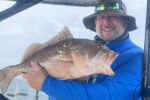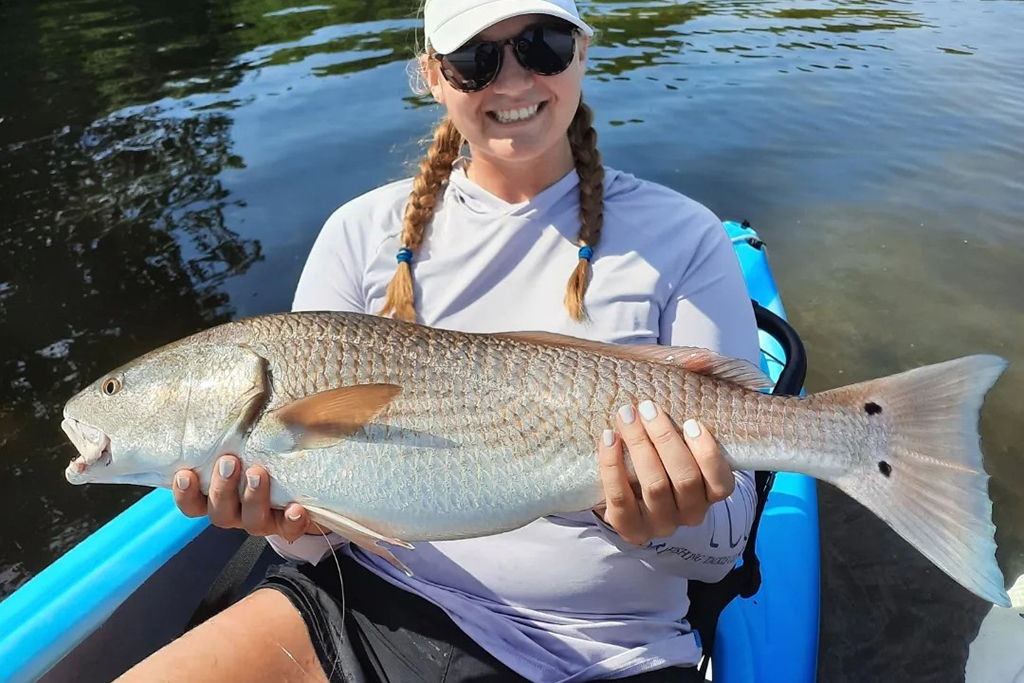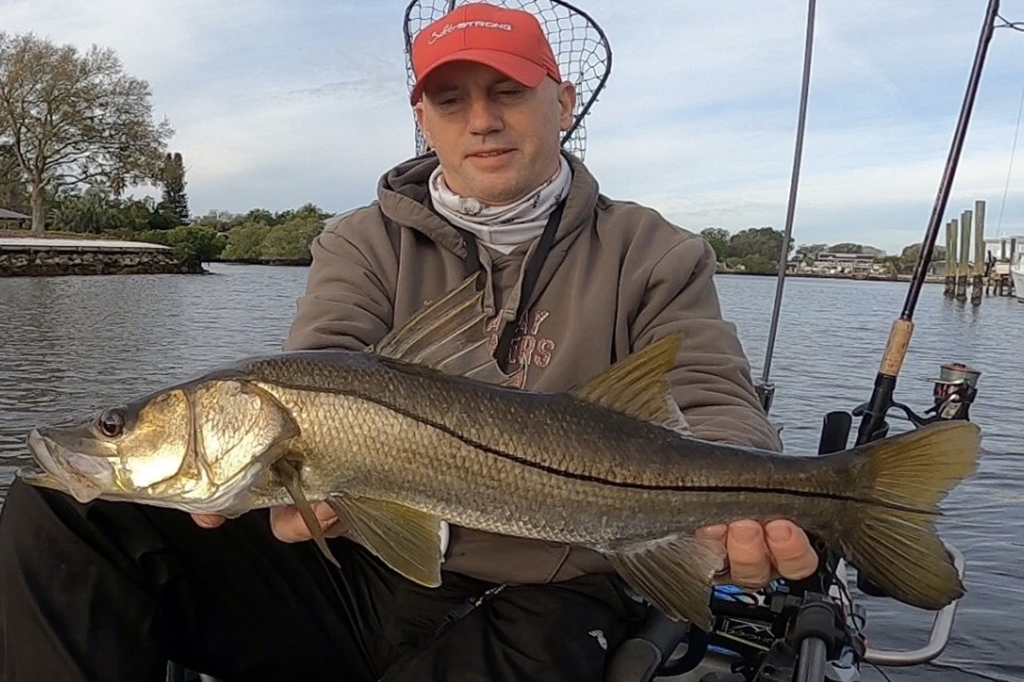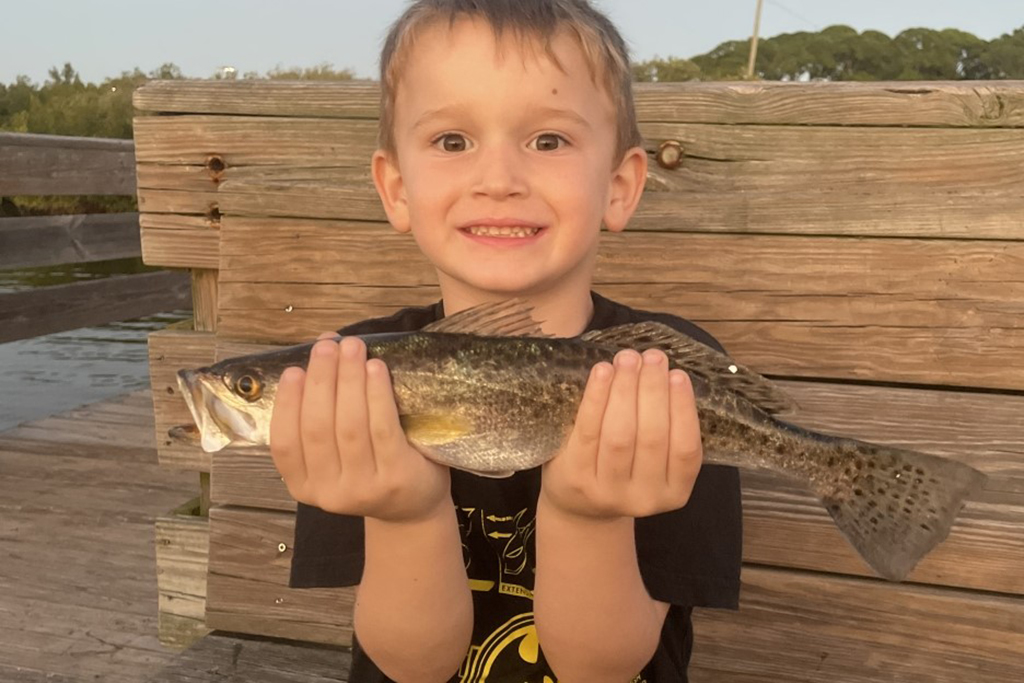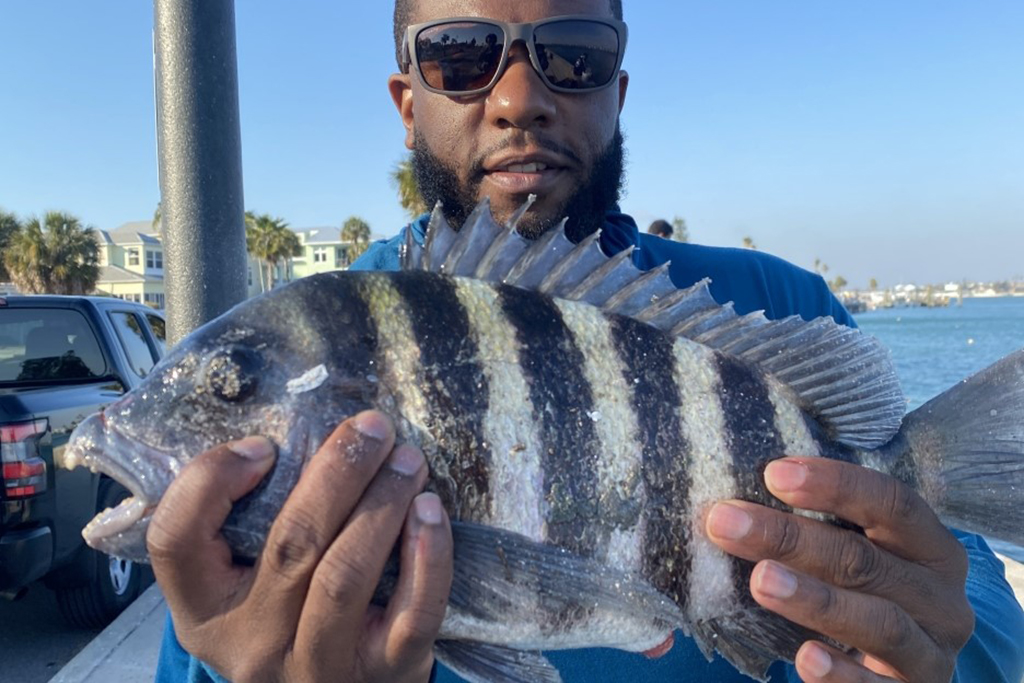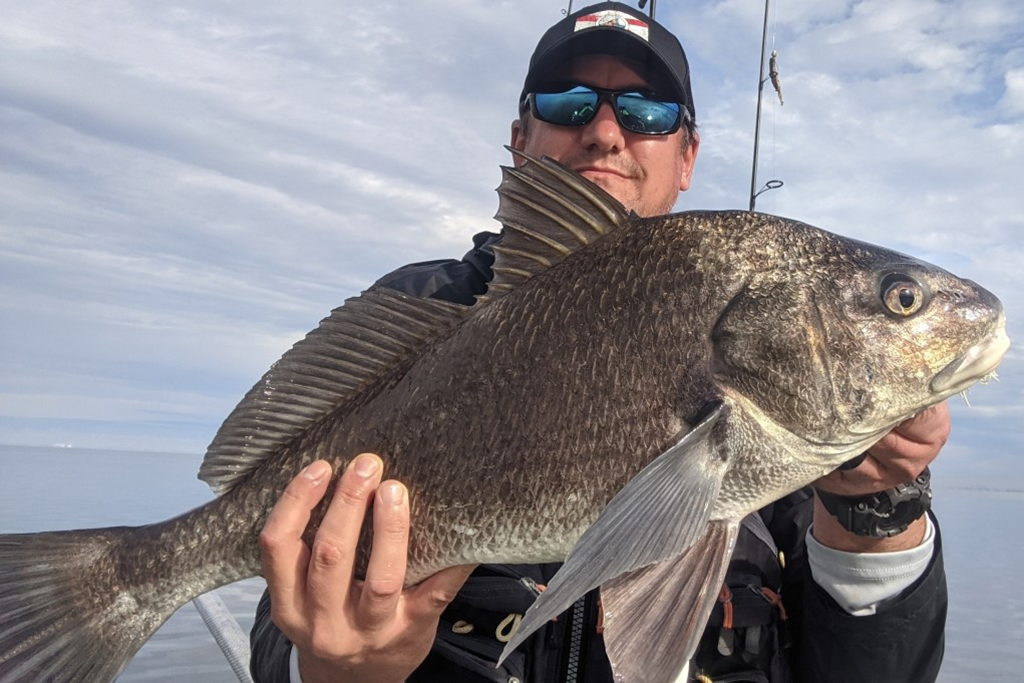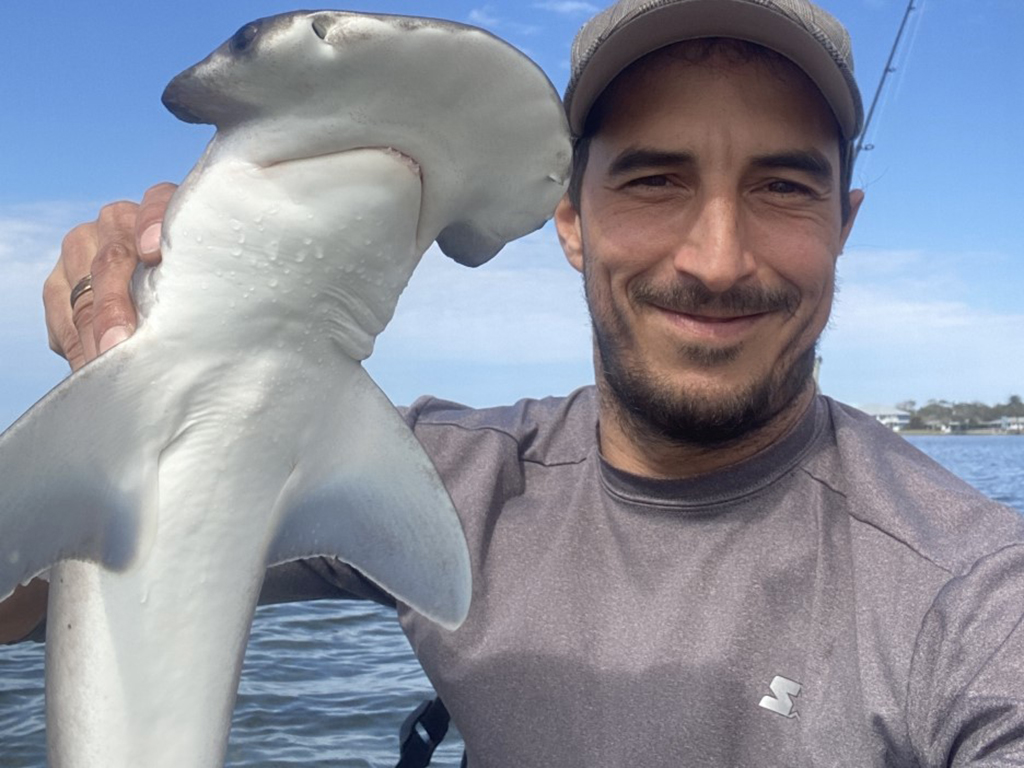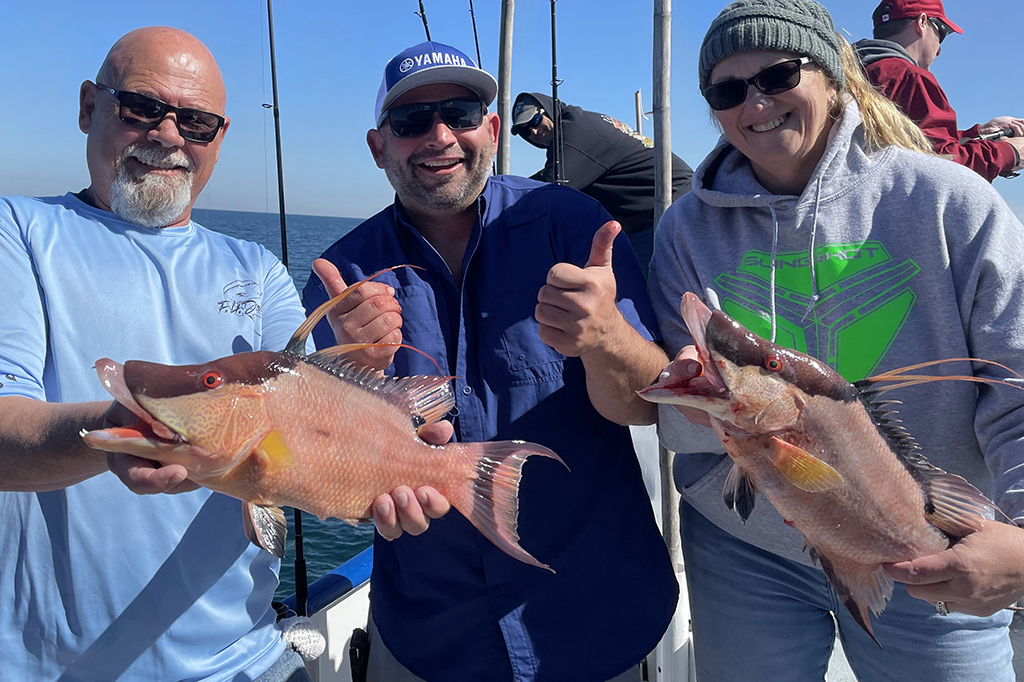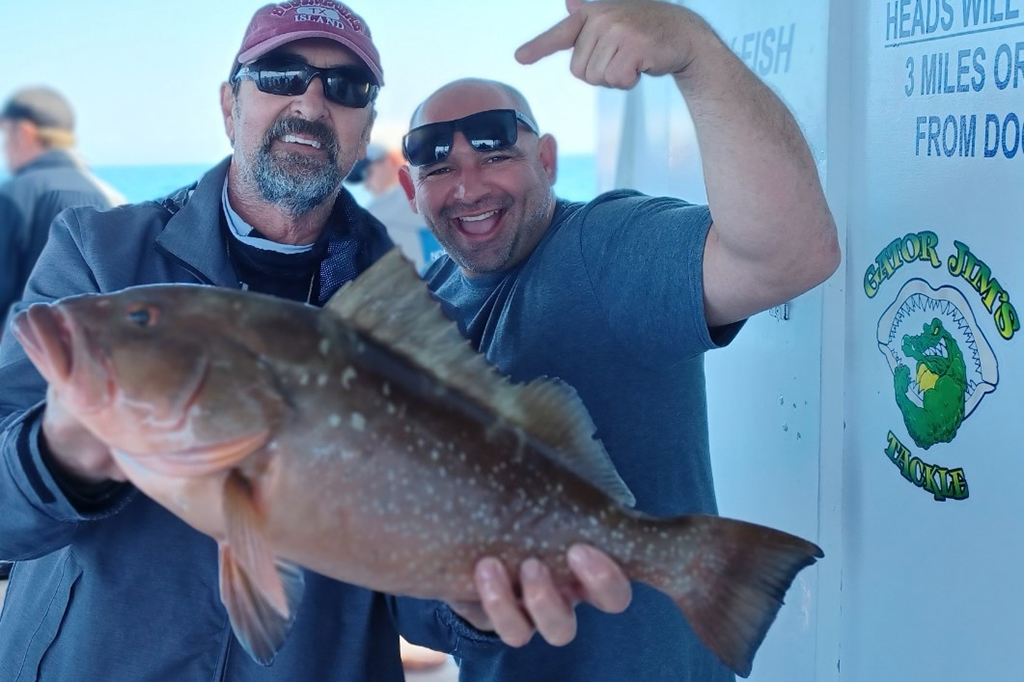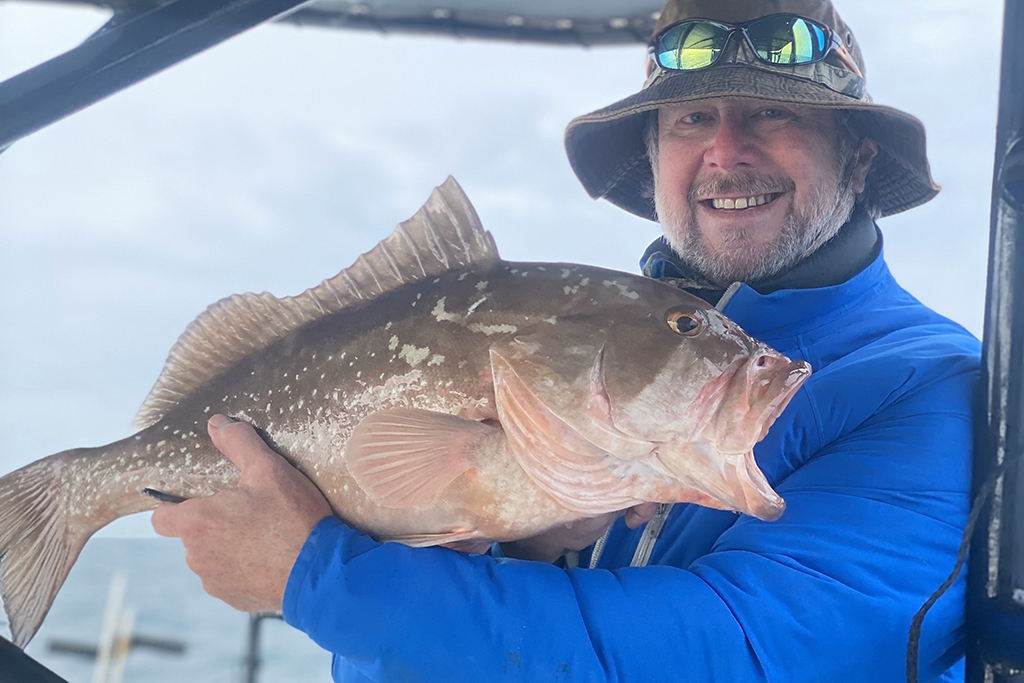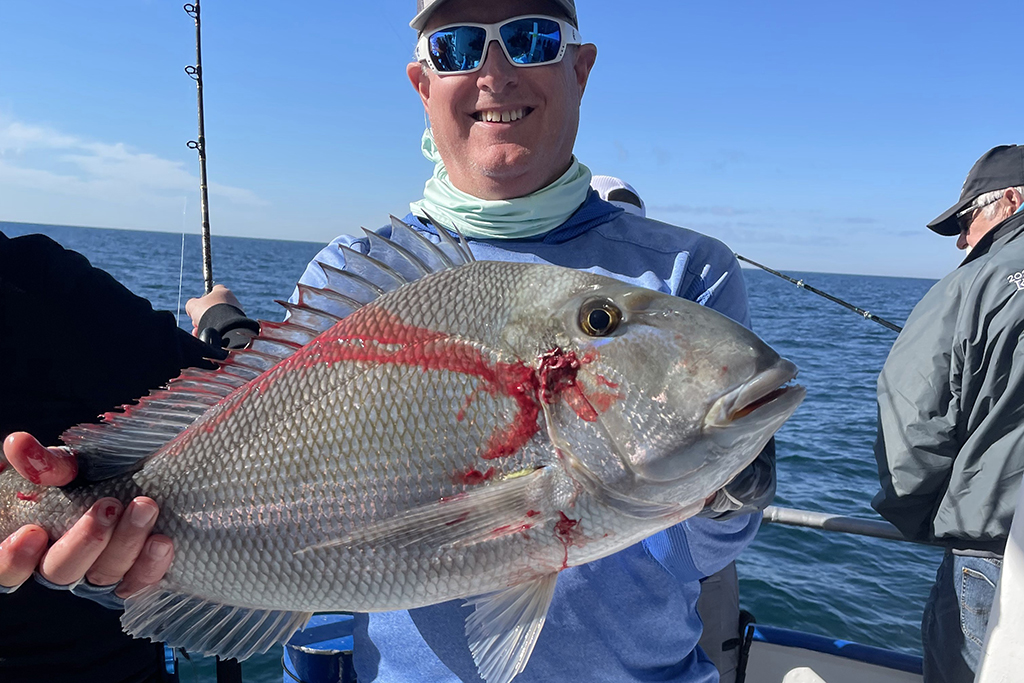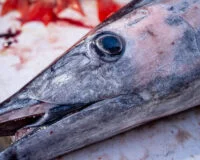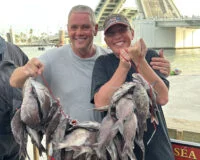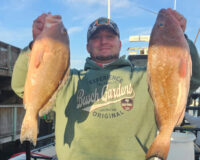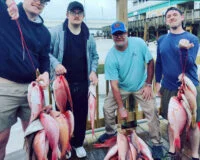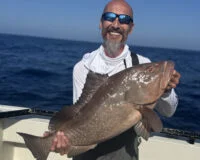Hubbard's Marina Fishing Report
Inshore Fishing Report
Redfish action has been steady through the area this past week. They have been finicky a bit and tough to find in a feeding mode, but most of the success has been around shallow sunbaked flats, mangrove shorelines and dock lines. It appears the incoming tide is working well this past week as well. Live shrimp has been a great option on light tackle, but slow-moving soft plastics worked well too. Remember, when the water is chilly like it is now the fish are moving super slow and are looking for baits that are slow movers too. They will not chase down a fast retrieved lure when they are cold so if you think you are retrieving that paddle tail, fluke, or shrimp soft plastic slow enough then slow down even more and you could be getting close enough to the speed they are looking for. Once you find the fish, find the speed, and stick to that speed as you look for other fish. Long casts to areas you see fish or think there may be fish has been key as they are very leader shy and spooky. If you get to close, cast a shadow, or create vibrations they are much less likely to eat if not, totally scatter.
Snook, like the redfish, are looking for those slower moving baits. They are even more so affected by the cooler water temps, and they are very lethargic. This is the time of year cut dead bait works well for both species. Night dock light fishing is also a good option for snook this time of year especially if you can find those older underwater lights that tend to radiate more heat. These things will warm the water around them and hold lots of fish especially at the bottom closer to the light’s edge. During the day, residential dock lines with sunbaked seawalls in wind protected canals have been working well to find actively feeding snook. However, the right tide is key and finding those fish ready to eat has most to do with not only a little warmer water and the right presentation on your bait but that right tidal window too. Use your tide charts, apps, or tide sites to find the solunar times and observe the difference in action on those solunar major and minor times. Often the best action will coincide with either the major or minor solunar time frames or near them. I like the ‘smart fishing tides’ product salt strong has because it not only shows the solunars but breaks down the days to assign them scores and even the hours of the day to assign hourly scores on when the best time to fish will be for that area based on moon phase, weather, and tidal solunars.
Trout action has been spotty but seemingly improved this past week. We are seeing a lot of these guys around our local passes and beaches. Plus, the back bay waters around those shallow flats, oyster bars, mangrove shorelines and dock lines too. Again, to reiterate, moving your bait slow is key for most any inshore species right now due to those cooler water temps. Live shrimp, small pinfish, and white bait have worked well this past week for the trout action. Find those edges, drop offs, potholes, or cuts around the flats for the best chance at finding concentrated trout action.
Sheepshead around the area are still biting very well from the seawalls to rock piles of the bay any where you can find some structure with some growth is working well to produce sheepshead action. Smaller shrimp, cut oyster, clams or crabs have been the go-to baits of choice for those targeting sheepshead. Local bridges too are great places to find hungry and plentiful sheepshead. When the weather is tough, and the water is stirred up like it will be Saturday afternoon or into Sunday then it’s a great time for sheepshead fishing around protected areas like bridges, canals, or fishing from shore on a pier or dock.
Black drum have continued to bite well around the area where you can find them. Dock lines, bridges, and occasionally the flats. You will find the hungry black drum sometimes in big schools sometimes cruising alone or in pairs. Shrimp is a great option for them but if you want to target them cutting some medium to large crabs in half and sinking them to the bottom around larger local bridges is a great option to get you a big black drum hook up.
Bonnet head sharks have continued to be prolific and aggressive from our beaches and passes to the back bay waters. We have a lot of these guys in the area, and they love a live or even dead shrimp on the bottom. When they are around typically, they are in high numbers and bite consistently so it makes for tons of fun for any level experienced angler to catch plenty and have a good time doing it.
Nearshore Fishing Report
The hogfish bite has been good for us lately especially around that 40-80ft area. We are seeing them come up mainly on the knocker rig with live shrimp, but jig heads, ball jigs and even the fish finder rigs have worked too. We mainly use live shrimp as it gives you a chance for lane snapper, mangroves, and plentiful others too. However, rock shrimp, sand fleas, and even fiddler crabs are great bait options for the hogfish. They are great eating fish that can be tricky to target, but consistency and soaking out a spot is key to finding where they are and having a chance to hook one. Using light tackle and live shrimp on a sensitive spinning rod with a lighter tip and strong back bone is key. The reel needs to be light with plenty of drag to handle these strong fighting fish. The nice hogfish can put up a real fight thanks to their larger flat bodies enabling them to use them to create plenty of drag in the water as you try to haul them to the surface so be prepared!
Mangrove snapper have been spotty near shore, but the overall size remains impressive. Especially towards the deeper near shore waters around 70-100ft of water. This is the area we see the mangroves most often and some good-sized fish. Live shrimp, cut threadfins, and smaller to medium pinfish are good options for the mangrove snapper. Lighter leaders around 30-40lb are what we use near shore for the mangrove snapper action.
Lane snapper are also biting extremely well near shore out there past 60ft we seem to see plentiful lanes most often. Small chunks of squid, shrimp, and cut threadfin are all great options to target these great eating lane snappers. Look for them around the ledges, hard bottom, and rock pile areas.
Red grouper have been spotty near shore, but as you work deeper your chances of finding a keeper sized red grouper get better and better. Larger strips of squid, whole threadfins with the tail cut, or live pinfish are great options for the red grouper. These guys don’t rock you up like the gag grouper do so we typically use around 40-60lb test for these great eating fish.
Offshore Fishing Report
The deep-water closure continues along with some less than optimal weather conditions for offshore fishing. Luckily, we were able to sneak out there a few times and did well on plentiful fish. The mangrove snapper were a little spotty for us but plentiful vermilions, porgies and lane snapper made up for the lack of mangrove snapper on our mid-week 39 hour. We were expecting a solid 6ft sea but ended up with only around 4ft which isn’t bad aboard our large and stable Florida fisherman catamaran. The red grouper were tough but we were able to pick a few during the day. The nighttime bite right on that full moon was great, but the daytime action was slow due to the high pressure and full moon coupled together.
Pelagic action offshore remains pretty spotty and overall, fairly slow due to the stirred-up waters, cooler temps and the rapid barrage of fronts. If you can get deeper or find clear water, then you’d have a much better shot at finding some tuna and perhaps a wahoo.

